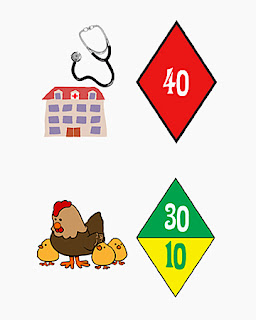Ethnocharettes, role-playing, simulation games, and other embodied pedagogical strategies are receiving increased attention in the field of anthropology. They are also increasingly being used to teach the basic principles of money and finance. These experiential teaching tools provide learners an opportunity to “switch sides” and take on the role of people facing financial hardships. This creates empathy and a more nuanced and critical understandings of socio-economic problems.
 |
| Loy Loy: The Savings Board Game |
Loy Loy (“Money Money” in Khmer) is a financial education board game developed by a team of anthropologists and economists at the Institute for Money, Technology & Financial Inclusion (IMTFI) at the University of California, Irvine, the Department of Banking and Finance at Monash University, and the Department of Anthropology at Portland State University. Loy Loy is a role-playing game where players take on the roles of Cambodian women workers in a Rotating Savings and Credit Association (ROSCA), earning monthly wages while making monthly contributions to their local savings group. Each month a different player gets a turn to take the pot of savings collected by the ROSCA. As players go through the game, they are hit with unforeseen expenses, but also collect windfalls and have a chance to invest in assets. Intended as an antidote to monopoly, the end goal of the game is for players to collectively save enough money to purchase a garment factory together. The game forces players to cooperate and support one another; everyone loses if any one player goes bankrupt!
 |
| Expense and Asset Cards |
Loy Loy is intended for a broad audience, from high school and university students to financial literacy advocates, educators, and policymakers in non-profits, banks, businesses, and government engaged in financial education programs. Loy Loy is therefore not only an innovative active learning tool for anthropology students but also an example of anthropology in action that breaks out of the ivory tower to educate a wider public engaged in poverty alleviation and financial inclusion.
 |
| Pilot testing Loy Loy at my Cultures of Money & Finance course at Portland State University |
Loy Loy is currently in the pilot-testing phase of product development. It has already been tested at several universities, international development conferences, credit unions, community organizations, NGOs and foundations. It was also recently on view at the British Museum as part of an exhibition titled Playing with Money: Currency and Games.
 |
| Members of The Cambodian Family Community Center in Orange County playtesting Loy Loy |
Please buy the game and join us in playtesting Loy Loy! We would also love to receive your feedback. This contributes to the iterative design process and will enhance the experience and playability of the game.
To purchase the game: https://www.thegamecrafter.com/games/loy-loy-the-savings-game
Loy Loy website: http://loyloy.org
For more information, contact: Mrinalini Tankha mtankha@pdx.edu or imtfi@uci.edu.
Read more about Loy Loy at the Geek Anthropologist, Analog Game Studies, LA Times, Medium, and IMTFI.
View original post here: https://www.copaainfo.org/post/loy-loy-the-financial-education-board-game-for-everyone
***
JOIN US! Next Friday, November 22nd
12-4pm at the AAAs in Vancouver
For those attending the
American Anthropological Association (AAA) conference
Loy Loy has an installation on
Loy Loy has an installation on
11/22/2019 from 12:00 PM to 4:00 PM
CC EAST | Exhibition Hall A | East Convention Level
CC EAST | Exhibition Hall A | East Convention Level
Come by the table, check out Loy Loy, and

